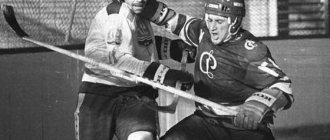Gleb Frank
Over the past six months, not a single news from the fishing industry is complete without the name of Gleb Frank. The son of the former Minister of Transport not long ago became the almost absolute owner of the Russian Fishing Company and is preparing to take over the entire industry.
The government renewal that took place the other day caused a noticeable revival in the whirlwind of bureaucratic everyday life. It is unlikely that any of the heads of ministries and departments are afraid of being left out of work - among the new appointments there are painfully familiar faces to everyone. But the prefix “acting,” which officials of the “old” government wore for a short time, gave extraordinary scope for fantasy: all unpopular decisions would go to the new cabinet of ministers, and you never know what could be attributed to interdepartmental confusion at the time of new appointments.
Those willing to take advantage of the cabinet turmoil were found immediately. Despite the series of May holidays, serious work was in full swing in the government. The Internet was filled with news about the upcoming closed meeting on May 15 with presidential aide Andrei Belousov. Its theme was supposed to be fishing, albeit on an industrial scale and on a national scale. In a confidential atmosphere among “his own,” Belousov planned to abolish the historical principle of distributing quotas for crab fishing. By the way, the officials of Rosrybolovstvo, headed by presidential aide Belousov, intended to close their doors not so much from the press as from the fishing industry themselves.
Assistant to the President Andrei Belousov
On the appointed day and hour, Andrei Belousov did not show up for the meeting with his colleagues. Instead, the meeting was chaired by Deputy Head of Rosrybolovstvo Petr Savchuk. The status of the event fell somewhat in the eyes of those gathered, and it is unlikely that such fateful decisions as the abolition of the historical principle were made at it. The indecisiveness of Rosrybolovstvo is quite understandable. The prospect of a return to auction trading in the fishing industry frightens many: ordinary fishermen, oligarchs who made their fortunes in fishing, governors who have become close to them, and even individual former members of the outgoing government. This motley group has one thing in common: they all remember how those same auctions took place.
Petr Savchuk
The historical principle means that a person who has previously fished in a particular area has an advantage in obtaining a quota. This approach provides the necessary economic sustainability for the development of the fishing business and the industry as a whole. The historical principle of quota distribution is used in most developed countries of the world. Introduced in Russia in 2004.
Until 2004, fishing quotas in our country were sold at auctions. They were purchased by those who had the necessary amounts, that is, mainly people from the financial sector. Not inclined to commit themselves to the fishing industry for long, they quickly sold fish and seafood for export, also quickly making tangible profits. Fish canning factories stood idle, unemployment in Kamchatka, Sakhalin and other fishing territories broke all records.
Like any area with high easy income, fishing was rapidly criminalized. The culmination of chaos in the industry was the execution of the governor of the Magadan region, Valentin Tsvetkov, in the center of Moscow. One of the versions of Tsvetkov’s murder was the showdown between the governor and some businessmen over crab fishing quotas. The profitability of crab is several times higher than that of even the most expensive sea fish. It was from the export of crab at the dawn of the 2000s that businessmen made instant huge profits.
Valentin Tsvetkov
Tsvetkov's high-profile murder forced federal officials to reform the industry.
At first, quotas were issued for five years. The results were not long in coming: poaching subsided, shipbuilding and fish processing began to revive. Soon the quotas were extended to 10 years, and in 2020 this period was increased to 15 years. Over the past years, many billionaires have grown up on the historical principle of quotas. Among them are ex-senator from the Sakhalin region Alexander Verkhovsky, the family of the current governor of the region Oleg Kozhemyako, senators from Kamchatka Valery Ponomarev and Boris Nevzorov, as well as a number of other people who invariably occupy high government positions. What could make Rosrybolovstvo go against such a powerful lobby and who suddenly needed old, but completely unkind auctions?
[edit] Education
Born on December 10, 1982 in Vladivostok. Until the age of 13, he lived and studied in Vladivostok. In 1995, he and his family moved to Moscow, where he studied at a school with in-depth study of foreign languages.
After graduating from school, he entered MGIMO International Law Faculty, where he studied from 1999 to 2004.
In 2008, Novaya Gazeta wrote that Gleb Frank was engaged to the daughter of oil trader Gennady Timchenko.[1][2] In 2017, in a Forbes publication, he was named as the husband of Timchenko’s youngest daughter, Ksenia Frank.[3]
Subsequently, he continued his studies in Europe. He has three European degrees: MBA/Master of Business Administration INSEAD (France, 2010), High performance boards IMD (Switzerland 2011) and Leading Family Office IMD (Switzerland 2020).
Career
2011. Gleb Frank becomes the founder and owner of the Russian Fishing Company. The opening of the first large enterprise was the first step towards further business development. In the process of expanding the market segment, the company was reorganized into the largest Russian association of fishing organizations located in different geographical locations of the country. As a result, Gleb Frank becomes the main owner of the largest pollock producer; he currently owns 89.95% of the controlling stake.
year 2014. Gleb Sergeevich becomes the head of the management council of ZAO Stroytransgaz. The oil and gas holding's specialization includes comprehensive servicing of large international projects. The company has become widely known due to its reliability and serious attitude towards customers. Currently, it is engaged in wholesale supplies, professional adjustment, service and maintenance of highly specialized mining equipment.
2016 Gleb Frank acquires a stake in the transport company, which is still partly owned by him. To qualitatively expand the existing business, he becomes a co-owner of Infotek-Baltika, a company specializing in sea cargo transportation. In addition, the company provides services for the delivery of goods to remote locations by land transport. Its official representative offices are located in many port regions of the Russian Federation, including the Leningrad, Arkhangelsk and Murmansk regions.
[edit] Career
In 2011, he became a member of the board of directors, a company that breeds Atlantic salmon and trout. In the same 2011, he became a member of the board of directors of the Russian Fishery Company.
Ruspres wrote in 2013 that Gleb Frank is on the board of directors of almost all companies where his father-in-law has a share, including IFSK ARKS LLC.[4]
In 2014, he became Chairman of the Board of Directors of ZAO Stroytransgaz. The company provides general contracting services: design support, engineering, construction and further maintenance of infrastructure projects in the oil and gas industry.
Business career
In parallel with his studies, Gleb Sergeevich worked and developed a fishing business.
Having secured the support of investors, in 2011 he created and joined the board of directors of the Russian Fishery Company, an enterprise for the production of Far Eastern varieties of fish. The organization, which united regional specialized enterprises, became the largest fishing enterprise in the country. In 2014, Gleb Frank became involved in issues of the oil and gas industry, heading the board of directors of ZAO Stroytransgaz, a holding company engaged in servicing large projects, supplying and setting up specialized equipment.
In 2020, the entrepreneur entered into shared ownership. This enterprise owns an offshore transshipment complex - a first-category oil storage tanker "Umba" with a cargo capacity of 300 tons.
Expanding his business, Frank acquired part of the Infotek-Baltika enterprise, specializing in the transportation and support of goods sent by sea. The company charters ships, hires a crew and handles all the necessary paperwork, and also provides services for the delivery of goods by land. The company has representative offices in the largest ports of the Russian Federation: St. Petersburg, Ust-Luga, Primorsk, Arkhangelsk, Vysotsk, Murmansk, etc.
Biography
Born on May 11 (May 24), 1904 in Nizhny Novgorod. Graduated from Crimean University (1925). In 1929-1933 he worked at the Leningrad Physical-Technical Institute. In 1933-1946, head of the biophysical department of the VIEM. In 1946-1948 he headed the Radiation Laboratory, on the basis of which the Institute of Biophysics of the USSR Academy of Medical Sciences was organized in 1948 (in 1948-1951 - director). In 1943-1952, he was the head of the Laboratory of Biophysics of Isotopes and Radiation of the USSR Academy of Sciences, on the basis of which the Institute of Biological Physics of the USSR Academy of Sciences was created in Moscow in 1952 (from 1957 - director). Member of the CPSU(b) since 1947. Academician of the USSR Academy of Sciences (1966; corresponding member since 1960), corresponding member of the USSR Academy of Medical Sciences (1945)
Died on October 10, 1976 in Moscow. He was buried in Pushchino (Moscow region) not far from the entrance to the building of the Institute of Theoretical and Experimental Biophysics of the Russian Academy of Sciences[1].
Main works on the biological effects of UV radiation, the biophysics of muscle contraction, and nervous excitation. Participated in the creation of the first Soviet electron microscope.
On Frank's initiative, the Coordination Center for Integrated Research in Biological Physics was created. Vice-President of the International Organization for the Study of Living Cells at UNESCO (since 1964). Member of the Council of the International Organization of Biophysicists (since 1961). Full member of the International Astronautical Academy (since 1966). Honorary member of the Academy of Sciences of Hungary (1973) and the Academy of Sciences of the GDR (1975).
Gleb Frank and Maxim Vorobyov
The answer to the second part of the question is quite obvious - auctions are needed by a new ambitious player who did not have time for the big division of the fishing industry in the 2000s. The newcomer’s readiness for auctions indicates that he has significant funds. Exactly one year ago, the crab market welcomed a new entrant who fits this description perfectly. It became the Russian Fishery Company (RRPC) of Maxim Vorobyov (until April 2020) and Gleb Frank.
Gleb Frank
The RRPK-controlled won six lots for crab fishing with a total volume of 2.4 thousand tons. The victory cost Vorobyov and Frank 10.3 billion rubles. Let us separately make a reservation that over the past year, Turnif did not catch even a third of the permitted volume, but managed to “check in” with the gray schemes for resale of quotas. They are forced to confuse the traces of the RRPK structure for one simple reason: the coastal snow crab included in the RRPK quotas, according to Russian legislation, had to be processed exclusively in Russia. However, there is no longer any need to resort to tricks. As soon as the RRPK started crab fishing, that same snow crab lost all value in the eyes of the government and was confidently excluded from the number of fisheries subject to mandatory processing in Russia.
Few people will be surprised by such coincidences, knowing the rich background of the Russian Fishing Company in every sense. Its main owners, Maxim Vorobyov and Gleb Frank, are literally connected to the government by blood ties. Maxim Vorobyov is the brother of the governor of the Moscow region Andrei Vorobyov. Gleb Frank is not only the son of ex-Minister of Transport Sergei Frank, but also the son-in-law of Gennady Timchenko. Largely thanks to the family ties between Vorobyov and Frank, RRPK became the second largest fishing company in the country. Therefore, Turnif’s purchase of crab fishing quotas forced RRPK’s competitors to tense up. And, I must say, not in vain.
Maxim Vorobiev
Already in the fall of 2020, it became clear that RRPK was no longer satisfied with being number two in the ranking of the largest fishing companies. The report of an anonymous letter to President Vladimir Putin with a request to reform the fishing industry became a danger signal for all the country's fishing industry. The authors of the message remained unknown, but behind their poorly hidden intentions, their names and faces are easily guessed. Anonymous people ask the head of state to abandon the historical principle of distributing quotas for crabs. Instead, the authors want to return to the auction system of the early 2000s. And in order not to stain the paper twice, they propose to abandon investment quotas (quotas allocated under the condition of building a crab fishing vessel on the territory of the Russian Federation). Presidential aide Andrei Belousov was assigned to review the proposed initiatives.
Education
In 2004, he graduated from the Faculty of International Law at MGIMO with a degree in international law. He continued his studies in France and then in other European countries. In 2010, he defended his Master of Business Administration (MBA) degree from INSEAD business school. At the Swiss International Institute for Management Development IMD, I attended the High Performance Boards (in 2011) and Leading Family Office (in 2020) training courses.
Business career milestones
2010 – member of the board of directors. The company specializes in industrial breeding of trout in Karelia and Atlantic salmon in the Barents Sea. The company also supplies frozen (chilled) fish to the Russian and foreign markets. The total volume of industrial production for commercial farming of salmon and trout is about 70 thousand tons per year.
2011 – member of the board of directors of the Russian Fishery Company. Frank Gleb Sergeevich was directly involved in the creation of this large enterprise with the support of a group of investors. The newly formed structure united specialized regional enterprises in the Far East. Industrial fishing is carried out in ecologically clean areas of the world's oceans. The RRPK includes the largest fishing companies in the region, CJSC Intraros, LLC Vostokrybprom, LLC Sovgavanryba, LLC Imlan, LLC Pelagial.
2014 – Chairman of the Board of Directors of the closed joint-stock company Stroytransgaz. The company specializes in the construction and maintenance of large infrastructure facilities in the oil and gas sector. The company provides business partners with a wide range of services: from design and construction to repair and reconstruction of industrial enterprises. The company carries out a full range of works on maintenance of main pipelines per year with a length of up to 1000 km.
2016 - co-owner of the Russian industrial. This enterprise owns the specialized floating oil storage facility “Umba”. The business structure is the only operating operator of the offshore transshipment complex.
2017 – co-owner of the maritime transport company. The company is engaged in the transportation and escort of sea cargo. MTK also provides services for chartering ships, processing documents necessary for transportation and delivering goods by land. Representative offices of the structure have been established in all major Russian ports of the Baltic and Barents Seas.
2018 – Frank Gleb Sergeevich became the main owner of RRPK, the largest miner of pollock. The businessman is currently the controlling (major) shareholder of the company with a stake of 89.95%. The organization takes a leading position in the domestic sphere of industrial production of several important species of marine fish. The enterprise’s share of pollock fishing is 14.7% of the all-Russian quota, and of Pacific herring – 9.9%. In 2015, the company's production volume amounted to 206.2 thousand tons of pollock and 32.4 thousand tons of herring.











